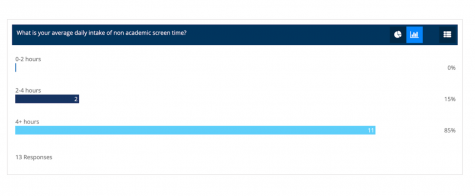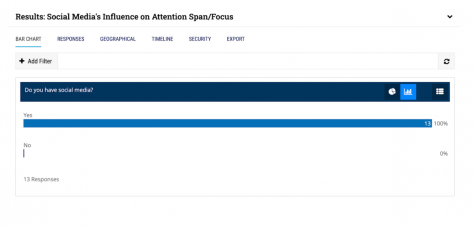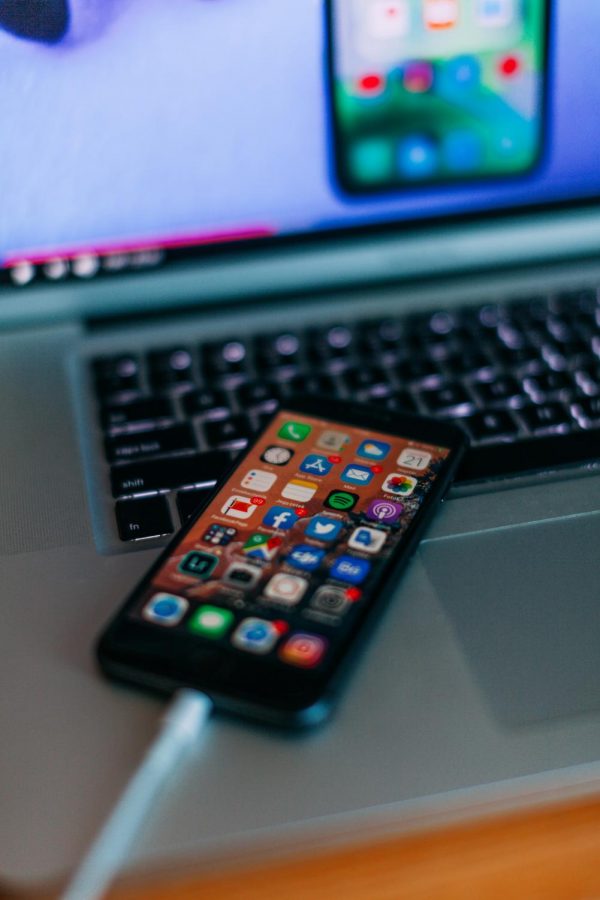Social Media’s Influence on Our Attention Spans
Social Media is an innovation that has taken over the world, and our minds. Here’s why you should reconsider how long you stay on it.
While social media has its uses, especially during the Coronavirus pandemic when we must socially distance from one another in the interests of safety, it also has negative effects with our cognitive functions and attentiveness.
The introduction of social media into daily life transformed the way people think and interact with each other. Social gatherings held to catch up with friends became an opportunity to post and show off to others. By posting calculated and edited pictures, people can change their entire perceived personality. They can make their followers envious of their lives, thus fueling the normalcy of spending hours scrolling through Instagram and Pinterest. Although it is challenging to break out of this cycle, doing so increases brain productivity, reduces anxiety, and lowers feelings of insecurity.
With excess time on their hands due to the Coronavirus pandemic, young adults have gravitated to their only form of entertainment at home, additional screen time. Students fail to realize how detrimental the normalized abuse of social media is towards their brain activity and perception of their surroundings.
Zoom fatigue is the burnt-out feeling of exhaustion after overusing online forms of communication, such as video calls or forms of entertainment, like Youtube or TikTok. According to The Psychiatric Times, “more active social connection is associated with more perceived reward, which in turn affects the very neurological pathways modulating alertness versus fatigue.” People on their phones do not experience face-to-face social connections and have trouble telling when their “social battery” is low and in need of rest time. In addition, the NCBI article, Associations between screen time and lower psychological well-being among children and adolescents, states, “High users of screens were also significantly more likely to have been diagnosed with anxiety or depression.”
The internet is a carefully crafted algorithm designed to have an addictive nature so that sites can profit from their clients’ excess use. An NCBI article, The online brain: how the internet may be changing our cognition, states, “even when not using the Internet for any specific purpose, smartphones have introduced widespread and habitual “checking” behaviours, characterized by quick but frequent inspections of the device for incoming information from news, social media, or personal contacts.” According to the article, these self-conditioned habits happen through the reinforcement from “information rewards,” which release dopamine to the brain every time there is an alert. These feelings of excitement contribute to constant stress and make it difficult to concentrate on other tasks.
When conducting a study of my own, I asked 24 Bronx Science students, six in each grade, various questions about their screen time and the amount of co-dependency they have with social media in their daily activities. Thirteen students replied, and 100% stated that they have social media that they regularly use, with 85% of them saying that they spend over 4 hours a day on social media. These numbers show the dependency students have on their phones and how it interferes with their schedules. Instead of leaving time to pursue a hobby or sleep longer, they have chosen to put their energy into apps purely because of their addictive nature. Yet, the growing use of social media has begun to trickle into students’ work time.

85% of the students in the survey stated that they have apps such as Snapchat, Instagram, or TikTok open while doing classwork and homework. The divided attention given to classwork generates the “burnout” feeling that has come with online school. It lowers students’ performance levels because they are focused on various screens at once.


Although the “online brain” might seem impossible to shake off, students can break these habits gradually. It is by creating a schedule that they can give themselves personal time and involve other forms of brain stimulation, like reading or exercising, in order to improve focus and to gain energy.
So the next time you might find yourself deciding between scrolling through social media or having peaceful downtime, it might be wise to choose the latter.
Students fail to realize how detrimental the normalized abuse of social media is towards their brain activity and perception of their surroundings.
Camila Kulahlioglu is an Editor-in-Chief for ‘The Science Survey.’ She hopes that her writing will inspire her peers to find new literary passions...

